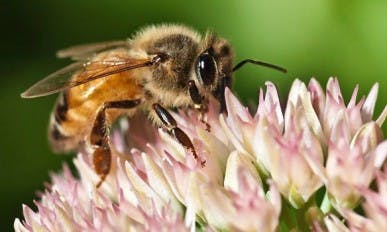Why Plant Native Plants?
Oregon boasts a beautiful and diverse bounty of native trees, shrubs, grasses, flowers, and more.
Our native plants have evolved alongside native wildlife to form a number of fascinating and co-dependent mutual relationships. But native plants provide landowners and gardeners a number of benefits, too!
Native plants provide shelter and food for every level of life on earth, from insects to birds, bears, and of course, people.
Many species that live in Oregon depend upon native plants for survival. One example is the Fender's Blue Butterfly, which only lays its eggs upon the Kincaid's Lupine. These butterfly larvae only feed on this one specific species, which has become increasingly rare, leading to the endangerment of the Fender's Blue.
Read about the Fender's Blue Butterfly and Kincaid Lupine Love Story
Learn how the Institute for Applied Ecology is working to restore Kincaid's Lupine in Oregon

Native plants have complex root systems, many of which venture far deeper than the average ornamental plant. These deep, extensive roots help to prevent soil erosion, bring nutrients closer to the surface, and support important soil microbes.
Learn how you can improve soil quality with native plants
.jpg?ixlib=rb-1.1.0&w=2000&h=2000&fit=max&or=0&s=3298c9e3a08e2fac351d0250ee0dcaf7)
Native plants have evolved to not just survive, but thrive, in local climates and habitats over many thousands of years. Our native plants are built to withstand both our wet winters and dry summers, making them generally more resilient than ornamental plants. There are native plants adapted to our clay soils, riverbank soils, and dry, rocky areas.
Learn about some of the habitat benefits that native plants provide

Because they're adapted to our weather, climate, and soils, native plants are a breeze to take care of! After some supplemental water their first summer while they establish their roots, native plants need very little water. They don't need to be fertilized, and are more resistant to pests and disease. Your backyard likely already has everything it needs to welcome native plants!
Learn how to choose the best native plants for your landscape







